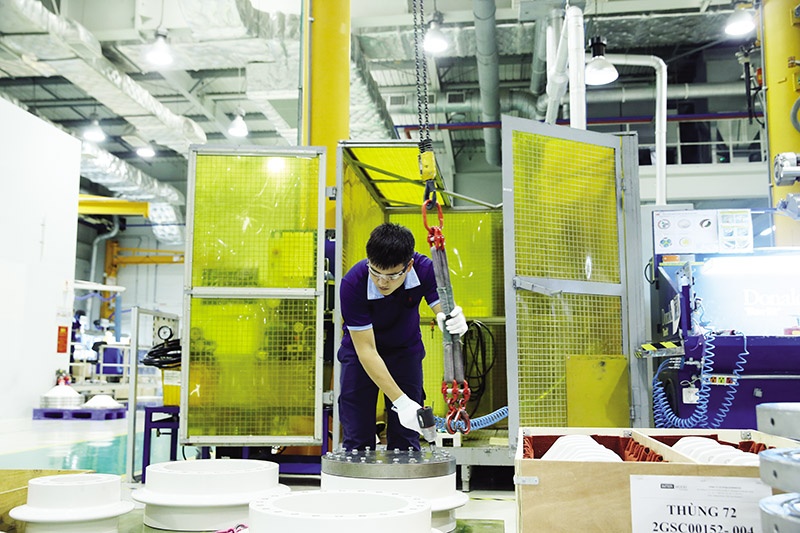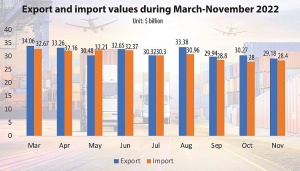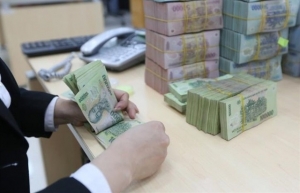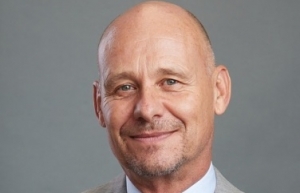Next year's economic hardships to become more visible
The two drivers of economic growth, exports and domestic demand, are moderating. Softer external demand has weighed on Vietnam’s exports. The post-pandemic consumption rebound also appears to be fading, and tighter domestic financial conditions and rising inflation could affect domestic demand going forward.
These are the most recent suggestions informed by the World Bank's "Vietnam Macro Monitoring" report, which discussed the economic development of Vietnam for December.
Up until this point, the problems confronting the Vietnamese economy in the next year have been extremely apparent.
 |
| It is anticipated that Vietnam's economy would keep growing strongly next year. Photo: Duc Thanh |
Andrew Jeffries, director of the Asian Development Bank in Vietnam, explained that the deceleration of Vietnam's economy after the third quarter of 2022 has seen a decline of the purchasing managers' index at 47-48 per cent, whereas a value below 50 per cent indicates a production downturn.
Jeffries forecasted that Vietnam's economy would grow by 6.3 per cent in 2023. He stated, "We will conduct a proper examination early next year, and in April we will provide Asian development prospects with updated data for Vietnam. It is possible that the country will keep growing vigorously next year, but at a slower rate than this year due to global risks."
A representative of the International Monetary Fund in Vietnam and Laos, Francois Painchaud, noted the three headwinds for the Vietnamese economy. "Global financial circumstances are tightening first. Second is the Ukraine-Russia war, and the slowdown in China's economic growth is the third factor to consider," he said.
Painchaud perceives two domestic threats posed by Vietnam. Inflation will continue to rise, resulting in a more stringent and cautious monetary policy; and there is the matter of the liquidity of commercial banks today.
"Because the need on the global market is limited, the tightening of monetary policy will continue for a long time, and thus it is anticipated that Vietnam's GDP will expand by roughly 5.8 per cent next year. This is still a strong growth rate relative to many other nations," he noted.
In this frame of reference, according to economic experts, several aspects will continue to be Vietnam's objectives in 2023 and the years that follow. They include preserving macroeconomic stability, controlling inflation, guaranteeing major balances, stimulating economic growth at a reasonable level, securing liquidity of the monetary sector and security, domestic energy security, and enhancing the economy's self-reliance and resilience.
Ramla Khalidi, resident representative of the United Nations Development Programme in Vietnam, stated that the country must determine that with its financial system, globalisation will steadily become less significant and domestic capital will gradually become the primary growth driver.
"In order to mobilise foreign money, Vietnam must enhance its domestic financial system and restructure its financial policy institutions in order to gain the confidence of international public-sector lenders and investors. With private international funding, investment prospects must be lucrative, transparent, and reliable," she said.
For instance, the Vietnamese government may invest in key infrastructure projects in advance, guaranteeing that these projects are prepared to accept investor capital flows. To encourage foreign private investment, it is also vital to provide a secure regulatory framework, according to Khalidi.
 | Economy prepares for external strain Vietnam’s economic growth prospects next year are expected to face tough challenges including slowdown in exports and investment, caused by various global fluctuations. |
 | Positive budget figures ensuring economic balance heading into 2023 The state budget landscape for January to the end of November witnessed positive figures, with enterprises gradually riding out the storm to ensure their performance. |
 | Dutch economic relations rising ahead of PM’s visit Prime Minister Pham Minh Chinh will pay an official visit to the Netherlands on December 13. Dutch Ambassador to Vietnam Kees van Baar spoke to VIR’s Thanh Tung about the trade and investment prospects between both nations. |
What the stars mean:
★ Poor ★ ★ Promising ★★★ Good ★★★★ Very good ★★★★★ Exceptional
Related Contents
Latest News
More News
- PM outlines new tasks for healthcare sector (February 25, 2026 | 16:00)
- Ho Chi Minh City launches plan for innovation and digital transformation (February 25, 2026 | 09:00)
- Vietnam sets ambitious dairy growth targets (February 24, 2026 | 18:00)
- Masan Consumer names new deputy CEO to drive foods and beverages growth (February 23, 2026 | 20:52)
- Myriad risks ahead, but ones Vietnam can confront (February 20, 2026 | 15:02)
- Vietnam making the leap into AI and semiconductors (February 20, 2026 | 09:37)
- Funding must be activated for semiconductor success (February 20, 2026 | 09:20)
- Resilience as new benchmark for smarter infrastructure (February 19, 2026 | 20:35)
- A golden time to shine within ASEAN (February 19, 2026 | 20:22)
- Vietnam’s pivotal year for advancing sustainability (February 19, 2026 | 08:44)

 Tag:
Tag:



















 Mobile Version
Mobile Version